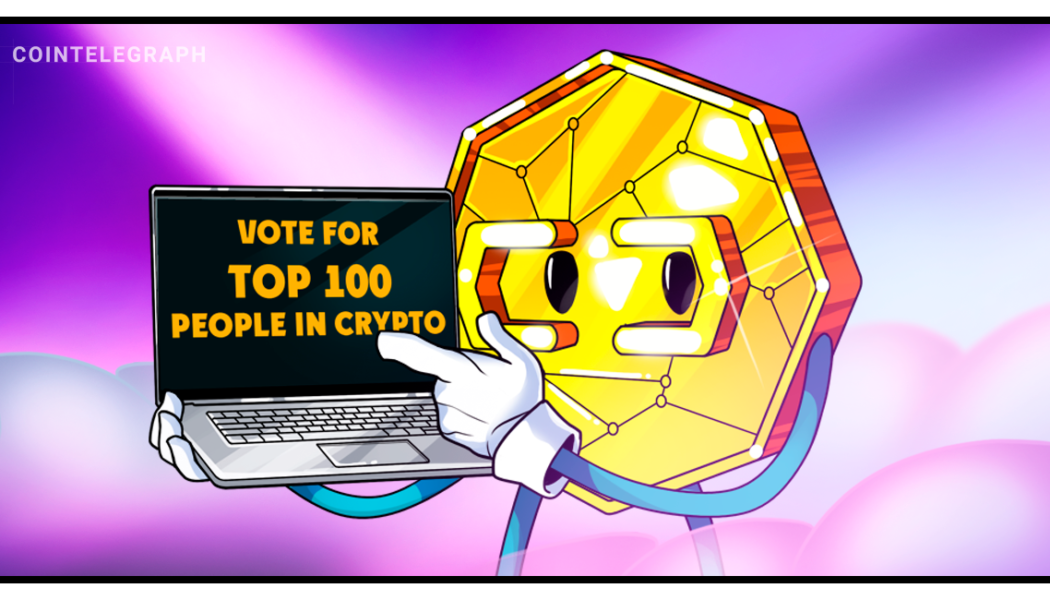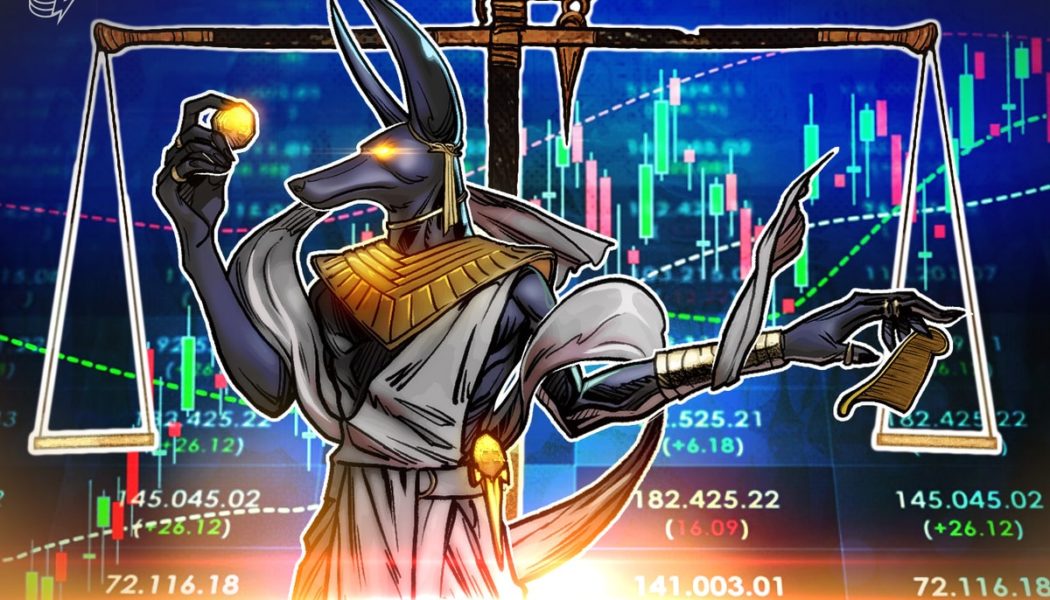Decentralization
WEF publishes new in-depth guide to DAOs to air issues, encourage development
The World Economic Forum (WEF) released a “toolkit” for decentralized autonomous organizations (DAOs) on Jan. 17. More than 100 experts contributed to the document’s attempt to provide “a starting point for DAOs to develop effective operational, governance and legal strategies.” The 37-page so-called toolkit is explanatory in nature, with concise but encyclopedic entries on DAOs and related topics. It described the toolkit as “a set of adaptable resources for key stakeholders to help realize the full potential of this emerging form.” DAOs have “the potential to address many of the shortcomings of the traditional firm while also realizing more equitable governance and operations,” according to the document. The World Economic Forum has published a toolkit on DAOs pic.twitter.com/i...
3 blockchain use cases that extend beyond crypto
Blockchain use cases have expanded far beyond cryptocurrency in recent years, with multiple industries embracing the technology in a wide range of fields, including healthcare, logistics and financial services. There are many factors behind the hype. Blockchains are decentralized, transparent and increase the capacity of a whole network, opening a window for solutions that require significant computational power. More importantly, they give users the capacity to control their assets, including their data, without relying on third parties. As blockchain evolves, companies across the world are working to find the best ways to implement the technology for a range of applications. To gain further insight, Cointelegraph reached out to projects disrupting industries and bringing blockchain...
$3.9 billion lost in the cryptocurrency market in 2022: Report
Immunefi, a bug bounty and security services platform for the Web3 ecosystem, published a report on Jan. 6 revealing that the crypto industry lost a total of 3.9 billion dollars in 2022. According to the report, hacks were found to be the main cause of the losses, accounting for 95.6% of the total, with fraud, scams, and rug pulls comprising the remaining 4.4%. Immunefi also found that decentralized finance (DeFi) was the most targeted sector, suffering 80.5% in losses, compared to centralized finance (CeFi) which suffered a loss of 19.5%. According to the report: “DeFi has suffered $3,180,023,103 in total losses in 2022, across 155 incidents. This number represents a 56.2% increase compared to 2021, when DeFi lost $2,036,015,896, in 107 incidents.” BNB and Ethereum were the mos...
Mastercard partners with Polygon to launch Web3 musician accelerator program
Global payments giant Mastercard is ramping up its exposure blockchain tech yet again, after announcing a Polygon-based accelerator program to help musicians build their careers via Web3. The firm announced the “Mastercard Artist Accelerator” program via a Jan. 7 blog post, outlining that from this spring, it will connect five emerging musicians from across the globe with mentors that will help them set up their brand in the Web3 music space. “The artists will gain exclusive access to special events, music releases and more. A first-of-its-kind curriculum will teach the artists how to build (and own) their brand through Web3 experiences like minting NFTs, representing themselves in virtual worlds and establishing an engaged community,” the post reads. The prog...
Crypto companies aim to build trust within future products and services
The cryptocurrency ecosystem underwent a turbulent year in 2022. Criticism inside and outside of the crypto industry was fueled following the collapse of FTX, Celsius, Three Arrows Capital and the Terra ecosystem. A number of losses have been recorded from these events. Blockchain analytics firm Chainalysis released a report in December of last year, which noted that the depegging of Terra’s stablecoin, Terra USD Classic (USTC), saw weekly-realized losses peak at $20.5 billion. Findings further show that the subsequent collapse of Three Arrows Capital and Celsius in June 2022 saw weekly-realized losses reach $33 billion. While these events may have resulted in a loss of trust within the crypto ecosystem, it’s important to point out that blockchain technology and cryptocurrency have n...
Web3 projects aim to create engagement between fans and sports leagues
The multi-billion-dollar sports industry is undergoing a digital transformation and Web3 elements are likely to play a major role. This notion was highlighted in Deloitte’s “2022 Sports Industry Outlook” report, which predicts an acceleration in the blending of real and digital worlds, along with growing markets for nonfungible tokens (NFTs) and immersive technologies. According to the report, such advances may lead to a significant increase in fan engagement. This is an important point to consider, given that fan engagement has long served as the backbone for ensuring sponsor revenue, ticket and merchandise sales, along with the overall popularity of a sports league. Yet as technology advances, sports fans have expressed interest in forming deeper relationships with sports leagues. ...
How time-weighted average price can reduce the market impact of large trades
Time-weighted average price is an algorithmic trade execution strategy commonly used in traditional finance tools. The goal of the strategy is to produce an average execution price that is relatively close to the time-weighted average price (TWAP) for the period that the user specifies. TWAP is mainly used to reduce a large order’s impact on the market by breaking it down into smaller orders and executing each one at regular intervals over a period of time. How TWAP can reduce the price impact of a large order Bids can influence the price of an asset in the order books or liquidity in the liquidity pools. For example, order books have multiple buy and sell orders at different prices. When a large buy order is placed, the price of an asset rises because all of the cheapest buy orders are be...
How crypto could be good for CBDC and vice versa: Industry exec explains
Cryptocurrencies like Bitcoin (BTC) could potentially find some mutually beneficial interactions with central bank digital currencies (CBDCs), according to one industry executive. While crypto is often associated with financial freedom, the concept of CBDC is frequently seen as the exact opposite. But this doesn’t mean that there cannot be a balance between the two, according to Itai Avneri, chief operating officer and deputy CEO at the crypto trading platform INX. CBDCs and regulated cryptocurrencies could potentially complement each other in the future as the two types of digital currencies have their own benefits, Avneri said in an interview with Cointelegraph on Dec. 22. Comparing CBDCs to regulated primary offerings, Avneri suggested that allowing or enabling crypto funds to participa...
Marshall Islands legally recognizes DAOs as domestic limited liability companies
The Republic of the Marshall Islands, an independent island state located in the Pacific Ocean near the Equator, has announced that the Decentralized Autonomous Organizations Act of 2022 has officially been passed into law. The law recognizes decentralized autonomous organizations and enables legal entities registered in the country to formally adopt DAO structures and governance tools. The government hopes the move will encourage the growth of decentralized entities and their accompanying elements within the state. According to the announcement, the DAO Act of 2022 will allow DAOs to incorporate as limited liability companies (LLCs), enabling them to identify as DAO LLCs. The act is also poised to allow both for-profit DAOs and nonprofit DAOs to register while providing definitions and re...
Uniswap to allow users to buy cryptocurrency using debit and credit cards
Decentralized exchange Uniswap has partnered with fintech company Moonpay to allow users to buy cryptocurrency on its web app using debit cards, credit cards, and bank transfers. The bank transfer option is being rolled out for users within most U.S. states, Brazil, the United Kingdom and the Single Euro Payments Area, also known as SEPA. In the announcement made on Dec. 20, Uniswap shared that its users will now be able to convert fiat to cryptocurrency on the Ethereum mainnet, Polygon, Optimism, and Artibrum in a matter of minutes. 1/ Go direct to DeFi Starting today, you can now purchase crypto on the Uniswap Web App using a credit/debit card or bank transfer at the best rates in web3 thanks to our partnership with @moonpay! https://t.co/YVyk8e6d2h — Uniswap Labs (@Uniswap) Decemb...
What is the relationship between blockchain and Web3?
Cryptocurrencies and blockchain are the building blocks of Web3. However, the decentralized web also relies on technologies like AR, VR, IoT and others unrelated to blockchain or digital currencies. The third generation of the internet, known as Web3, is based on blockchain technology. However, technologies like machine learning, big data, artificial intelligence (AI), the Internet of Things (IoT), augmented reality (AR), virtual reality (VR) and others enable decentralized apps (DApps) to analyze information in a sophisticated human-like manner in a Web3 environment. For instance, virtual reality headsets will create an exceptional shopping experience, allowing customers to interact with the products before making a purchase. However, these technologies are not based on cryptocu...























